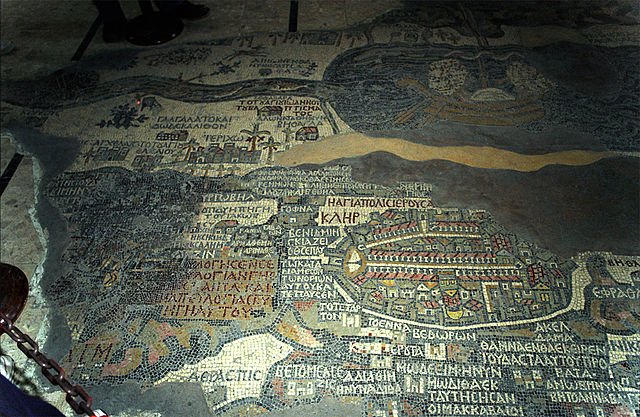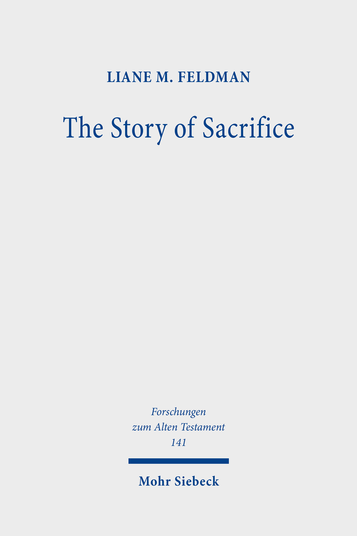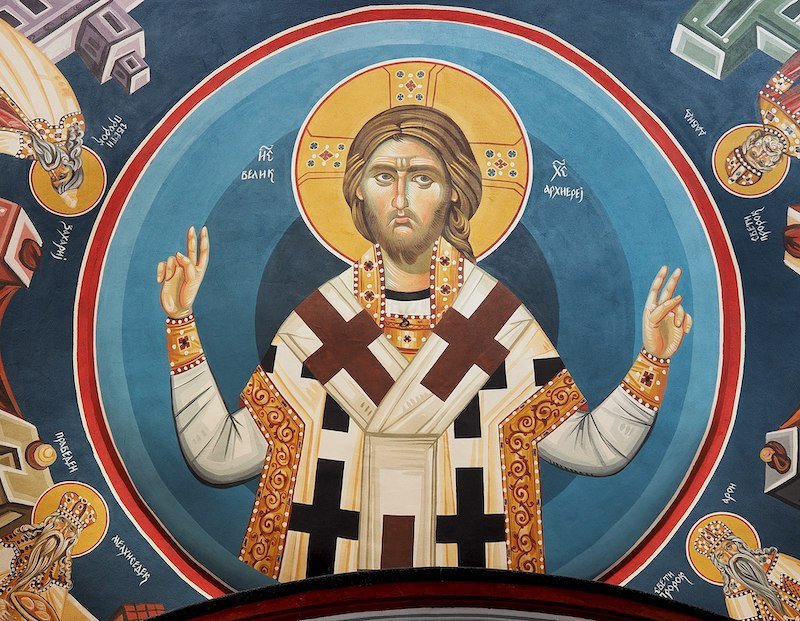We spend a lot of time speaking about what we study and how. When putting together the recent conference on “Tracing Christians in Global Late Antiquity,” the organizers wisely decided to open with a panel discussion on method, ethics, and historiography—a topic that opens a space for addressing what we talk about too little, namely, who.
Read MoreForum | Method, Ethics, and Historiography : A Late Ancient Caribbean in the Temporalities of Empire
To say the least, these Caribbean versions of Constantine and Justinian turned Puerto Rico into one of the outermost and unlikeliest of territories of a Transatlantic Roman Empire, an eruption of late antiquity into the so-called American Century.
Read MoreForum | Method, Ethics, and Historiography : Opening Remarks
One of the big challenges is both working against the ideological bent of our written sources and working against this huge body of scholarship with its sexist, Eurocentric ideas about what constitutes knowledge in the teleological march toward Western Civilization.
Read MoreForum | Method, Ethics, and Historiography : Tracing Christians in Global Late Antiquity Roundtable
Ancient Jew Review is pleased to feature the remarks from the opening roundtable, “Method, Ethics, and Historiography in the Study of Late Antique Christianity.”
Read MoreBook Note | Land and Temple: Field Sacralization and the Agrarian Priesthood of Second Temple Judaism
While studies of the economy in Palestine during Tannaitic and Amoraic periods have a great quantity of textual evidence to draw upon, including but not limited to rabbinic sources, there is much less material available from the Second Temple period available for such an analysis. As such, Gordon’s work attempts to examine a wide range of both textual and archaeological evidence in order to flesh out our knowledge of the Jerusalem Temple economy.
Read MoreReview | The History of the Church: A New Translation
Schott’s translation requires dedication on the part of the reader who may need to use the glossary, but also renders the Greek language and rhetorical techniques Eusebius employs more visible.
Read MoreSharing Work, Requesting Feedback, and Offering Critique: A Modest Proposal
If we are to individually tailor our responses, how can we figure out what sort of feedback someone is seeking?
Read MoreBook Note | The Story of Sacrifice
In The Story of Sacrifice, Liane M. Feldman offers an innovative reading of the pentateuchal Priestly source, taking on two of the most entrenched dichotomies in biblical studies: (1) ritual vs. narrative and (2) literature vs. history.
Read MoreThe Ascension of Isaiah: Some Thoughts
Christ Pantokrator, Fresco from the Nativity of the Theotokos Church in Bitola, Macedonia (image courtesy of Wikimedia Commons).
Christ Pantokrator, Fresco from the Nativity of the Theotokos Church in Bitola, Macedonia (image courtesy of Wikimedia Commons).
Leaving behind the old redactional-stages approach (that has tempted many scholars through today), we are really forced to think about what “Jewish” and “Christian” should mean as identity or boundary-categories in the world of this text. Clearly it is too simplistic to lop off the Ascension section as “Christian” and call the Martyrdom section “Jewish,” since the Ascension participates in innumerable ways in a Jewish apocalyptic ascent framework, while the Martyrdom section is deeply enmeshed with the Ascension.
Read MoreSpecial Delivery: The Hidden Birth of Jesus in the Ascension of Isaiah 11
The emphasis on the abnormal aspects of Mary’s childbearing prompts reflection on whether the text conveys a real birth of a real man, or an appearance which circumvents the usual modes of human entry and human being in the world.
Read MoreThe Ascension of Isaiah Through the Prism of Papyrus Amherst 1
Additionally, Isaiah as a character is, I think, modeled as a Matthean Christ-figure in certain respects: both are positioned as part of a prophetic critique of ruling powers, tempted by some kind of evil entity to renounce something and gain earthly status, and killed with a wooden instrument. The charge of prophesying against Jerusalem is crucial in the trials of Jesus and Isaiah. The title ‘the Beloved’ is also emphasized uniquely in Matthew’s gospel with a citation from the Book of Isaiah (Matt 12:18).
Read MoreThe Ascension of Isaiah: A BRANE Forum
AJR is pleased to host a series of articles on new scholarship on the Ascension of Isaiah. These articles all originated as papers presented at the BRANE Collective’s Primary Text Lab III, on Wednesday, June 23, 2021.
Read MoreWhat Does the Ascension of Isaiah Do?
Detail of a miniature of the martyrdom of Isaiah, BL MS Royal 17 E VII f. 36v
Detail of a miniature of the martyrdom of Isaiah, BL MS Royal 17 E VII f. 36v
I like to think about apocalyptic rhetoric far more than I like to think about apocalypses: that is, what is a particular text doing vs. what is this text? So when I think about Ascension of Isaiah my question is: What is this particular text doing for readers and audiences?
Read MoreAn Introduction to the Ascension of Isaiah
Apocryphal Book of the Ascension of Isaiah in Ge‘ez [20th century], British Library, EAP357/1/11, https://eap.bl.uk/archive-file/EAP357-1-11
Apocryphal Book of the Ascension of Isaiah in Ge‘ez [20th century], British Library, EAP357/1/11, https://eap.bl.uk/archive-file/EAP357-1-11
Although it is often described as an apocalypse, the Ascension defies simple categorisation. As a result, it invites capacious conversation about the categories that modern scholars use to understand ancient texts and about how scholars study texts with expansive histories across historical, linguistic, and religious contexts.
Read MorePublication | The Slow Fall of Babel: Languages and Identities in Late Antique Christianity
What does it mean to be labeled a foreign language speaker in late antique Christianity? How was one’s status as a native or non-native speaker determined? Was such a person considered a heretic? A barbarian? A Christian of equal standing? A saint or a demon?
Read MoreReview | Apocalypse as Holy War: Divine Politics and Polemics in the Letters of Paul
Wasserman posits that Jewish apocalyptic works are better understood as myths about relationships in the divine realm. These writings do not share a common worldview (especially two age dualism) or theological system, but rather premises about the structure of the world.
Read MoreAJR Conversations I Texts After Terror
AJR continues its conversations series with an exchange between Rhiannon Graybill and Jill Hicks-Keeton on Graybill’s new book, Texts After Terror: Rape, Sexual Violence, and the Hebrew Bible (Oxford University Press, 2021).
Read MoreReview I The Godman and the Sea: The Empty Tomb, the Trauma of the Jews, and the Gospel of Mark
Echoing the atomsphere of Mark, Thate left his book intentionally unfinished. As a whole, The Godman and the Sea covers a wide range of scholarly debates surrounding the Markan narrative
Read MoreReview | Cicero and the Rise of Deification at Rome
By deftly combining textual analysis and historical considerations, Cole walks the readers through more than forty of Cicero’s writings (from his political orations, philosophical treatises, and personal letters) written between the late 70s and the late 40s BCE. Cole’s analysis demonstrates how Cicero introduced, experimented, and negotiated a new conceptualization of deification in Rome.
Read MorePublication | The Epistles for All Christians
How did the Gospels circulate? Is there any way to determine how they might have or what the evangelists expected for their circulation?
Read More




![Lucio Fontana, Madonna (1956) [Image courtesy of Flickr]](https://images.squarespace-cdn.com/content/v1/5449167fe4b078c86b41f810/1622988343090-4AM7PUQWZC81Y45Z8TT0/17329001992_c0c2f0cdba_c.jpg)







![Wassily Kandinsky, Improvisation No. 30 (Cannons) (1913) Art Institute of Chicago [Wikimedia]](https://images.squarespace-cdn.com/content/v1/5449167fe4b078c86b41f810/1609962640997-3MBGSGUU9XHIBF1Q3OJZ/601px-Vasily_Kandinsky%2C_Improvisation_No._30_%28Cannons%29%2C_1913%2C_1931.511%2C_Art_Institute_of_Chicago.jpg)



![Guercino, Saint Paul (ca. 1591-1666 CE) [Wikimedia]](https://images.squarespace-cdn.com/content/v1/5449167fe4b078c86b41f810/1625346930471-3KOGD69T3Y7CC1IPPOE9/Saint_Paul_MET_DP810223.jpg)